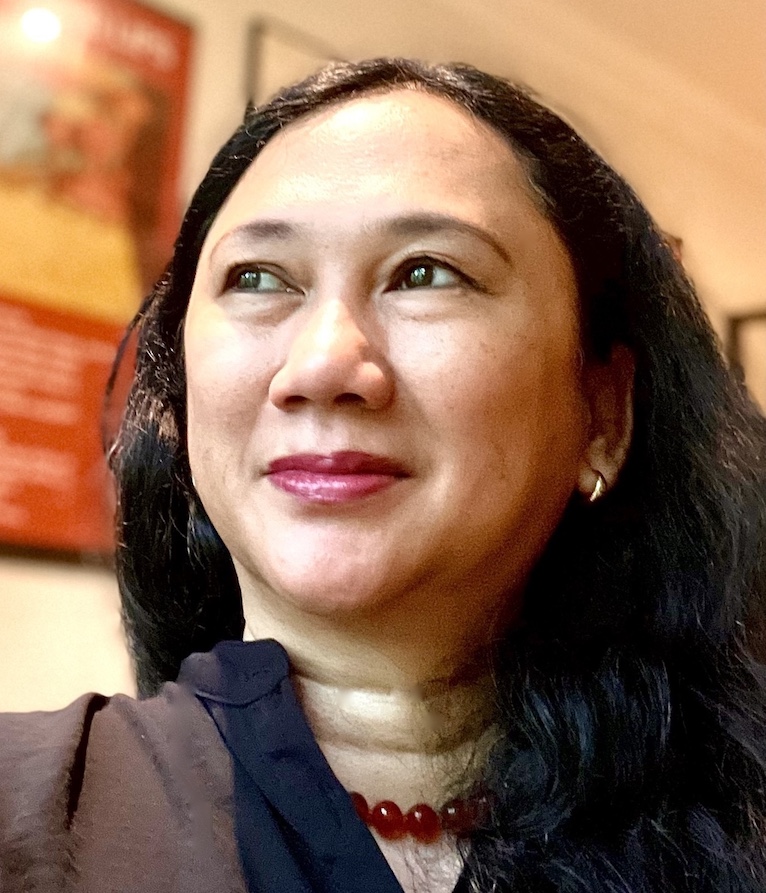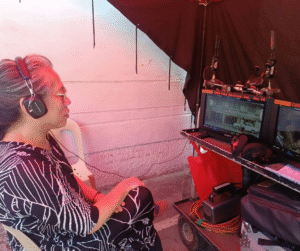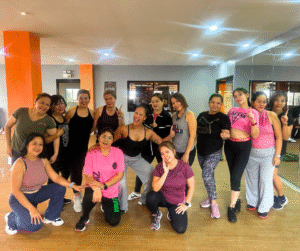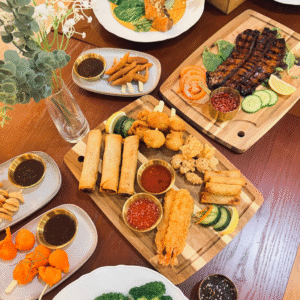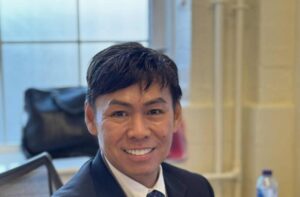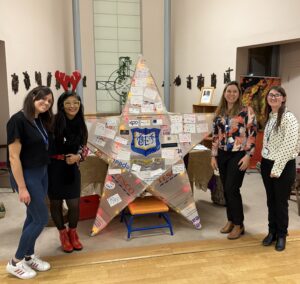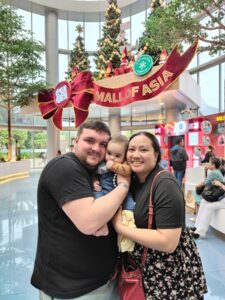By Aman Singh Gandhi
Tinig UK’s Aman Singh Gandhi spoke with Filipino writer, Carla Montemayor, who was recently selected to take part in The London Library’s Emerging Writers Programme. She was one of 40 participants chosen out of almost 950 applicants who will enjoy one year of free membership at The London Library, including access to writing development masterclasses, among others. Carla discusses her daily writing routine, her passion for creative writing, and shares tips for fellow emerging writers.
What time do you wake up?
I try to wake up around six or seven in the morning and go through my writing plan for the day. I am not very productive in the early hours of the morning. If I have a specific deadline for a writing project, I break up my writing period and work from four to six and then from ten till twelve.
Do you have a morning ritual?
I try to do some exercises, some stretching. If it’s warm enough outside, I go for a walk in the morning. If it’s not, I go for a walk after lunch.
What got you into writing?
I started when I was in high school, back in the Philippines. I worked as an editor in the school paper. At that point, I thought I would pursue a writing career more along the lines of journalism. At that time, it wasn’t a viable career to be a creative writer in the Philippines. Even now, it’s difficult. Well, here in Britain, it’s not that easy either.
I studied something completely different for university, after that, I worked in politics. I worked for the Philippines Congress – more on the political side – and writing took a back seat.
I would say, if you are harbouring this dream of writing, it would be to seek out concrete ways to make it real…if you have that dream, try to look around, explore opportunities and spaces, to make it real.
I returned to it later. I thought, maybe it was time to go back to my original dream. It’s always been a dream. I just had to find a way to make it real. And that came in the last five years.
What are your three favorite books?
Einstein’s Dreams by Alan Lightman. It’s a collection of stories about Einstein’s conception of time. Alan Lightman is a physicist. He teaches creative writing at Massachusetts Institute of Technology. I loved that book very much when I first read it. I thought, this is where I would like to be creatively. In terms of creative writing where the genres are blended.
I was also very taken with Love in the Time of Cholera by Gabriel Garcia Marquez. I kind of like the magical realism approach. There are a lot of similarities between the Philippines and Latin American countries in terms of colonial history.
Finally, I recently read this book by Ruth Ozaki, A Tale for the Time Being. It’s an autofiction, about her world in Canada and a Japanese girl in Tokyo.
Any tips to fellow writers?
I would say, if you are harbouring this dream of writing, it would be to seek out concrete ways to make it real. I know a lot of people who write in private, but who don’t consider that one day they might be published. It is a very intimidating industry, especially here in London. It is a global publishing hub. It’s very competitive. So, I would say, if you have that dream, try to look around, explore opportunities and spaces, to make it real.
Attend workshops, try to get into programs, try to join competitions. I say this from my first-hand experience. I never really thought about a professional path for creative writing until I joined these things. Look for opportunities – there are more these days, compared to ten years ago, especially for writers of color. Spaces are opening, take advantage of that and just do it.
How does it feel to be a part of the emerging writers program of The London Library?
I am very thrilled to be a part of it and really excited. I went on a public tour of The London Library many years ago. I looked into membership and I was intimidated by the expense and then, when I saw it recently, this is just a fourth programme. I thought that for my second book project, I really needed to do a lot of research because it’s about pre-colonial Philippines history and there are archives involved, anthropology writings and historical journals. I also remembered the tour and how beautiful the space is of The London Library.
I am very excited to use the space for writing, to be surrounded by books and have a devoted place to read and write. I am also excited to meet other participants. I have also been to the London Writers Awards last year, where I met really good friends and found further inspiration. As you know, we have been through two years of isolation, so a writer´s community is very important to me. I am looking forward to also finding out what other people are working on, and giving feedback and receiving feedback.
Which writers have inspired you?
Loads! I recently came across the books of Xiaolu Guo, a Chinese writer who has lived in Britain. She came here as a student. We share a similar history as immigrants. She wrote a novel called A Concise Chinese-English Dictionary for Lovers. It is about the language barrier between her and her lover. It’s written in the English she was using at the time because she was still trying to learn the language. I was very taken by that because traditionally, especially as foreigners, we are expected to have perfect English. She wrote this book and to me it was very moving. She was learning about the country, herself, and Britain by writing a book.
She also wrote a memoir (which was my first project). It was about her growing up in the south of China and that was very striking to me because it’s about hardships and repression, and how she overcame them. It also described her family background, specifically, what her parents went through during the Cultural Revolution. I also found out that she is a filmmaker. She works across various mediums, and to me, that’s really inspiring. She continues to write and make films and build her creative life; to me, that’s the aspiration.
How does it make you feel to be a Filipino writer in England?
I think as Filipinos, we have only been visible very recently in British society. It is important for me to be recognized and there are not many of us here, so that’s really important. It’s not like Filipinos in America. There’s a large Filipino community there. So it is vital for me to represent the country or to be one as a Filipino. There are few of us. Romalyn Ante is a prize-winning poet and she is a nurse. She came out with her first poetry collection last year.
How do you usually end your day?
I usually try to write mid-afternoon between three and six. I keep the hours between six and nine as personal time. I love to cook. I also use that time to go out with friends, hang out in the pub or wherever.
Read Carla´s piece North of the River, shortlisted for the 2020 Life Writing Prize by Spread the Word.
About the author:
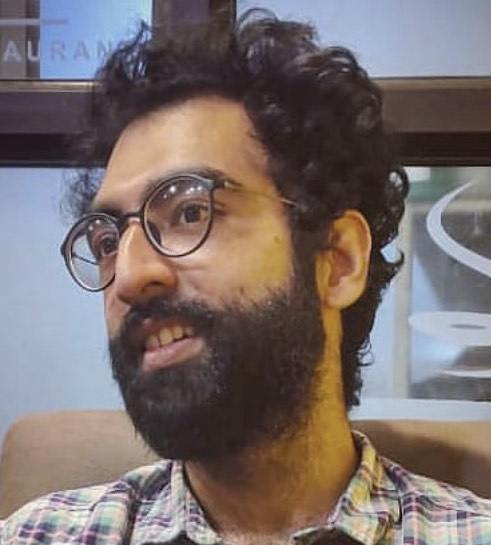
Aman Singh Gandhi is a MA Multimedia Journalism student at Bournemouth University. He has a BA in Mass Communication and Journalism. He has three years of experience in content writing and proofreading. He is currently a journalist at The Breaker and has covered wide-ranging stories, including social issues, Ukraine-Russia conflict, and inflation in the UK.

